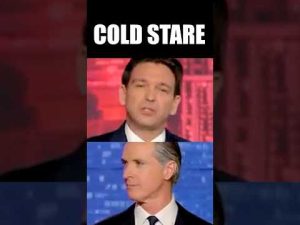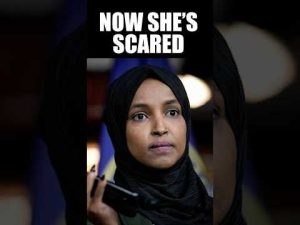In today’s political landscape, humor is often a contentious topic. It seems that, according to some on the left, individuals are not allowed to poke fun at certain political figures, no matter how ripe for satire they may be. For example, Kamala Harris is hailed as a “magical person,” which might suggest that any light-hearted critique of her is off-limits. On the other hand, those who criticize Donald Trump often do so by comparing him to Hitler, creating an atmosphere where humor about his antics feels frowned upon. This double standard raises significant questions about freedom of expression and the importance of humor in politics.
First, let’s analyze the absurdity of the situation. Critics of Trump frequently liken him to historical tyrants, suggesting that he is beyond reproach due to the severity of their comparisons. However, Trump himself has a unique ability to make light of his situation. When he jokes about becoming a dictator, he employs humor to deflate the tension surrounding his controversial persona. It’s as if Trump is engaging in comedy night at the local improv club instead of standing at the podium addressing serious matters. By embracing this style, he disarms his critics and engages those who might share a laugh instead of a political divide.
Moreover, Robert F. Kennedy Jr. recently pointed out that if Trump were to follow through on promises about free speech and dismantling the Department of Education, he might just become one of the most significant presidents since Abraham Lincoln. Now, that’s quite a statement! Kennedy’s comments spark both intrigue and skepticism. The idea that a leader could radically reshape the nation’s landscape leads to hypothesis after hypothesis about what those changes might entail. It’s both humorous and thought-provoking to contemplate how a free-from-constraints education system could be the remedy for America’s woes—or perhaps a recipe for chaos.
The fallout from such bold theories also reveals the inherent tension in modern political dialogue. Many people cling to their views so tightly that they forget the rich tradition of political parody and satire. A well-placed joke about political figures not only entertains but also opens the door to discussion. It’s an opportunity to confront underlying truths in a way that resonates with everyday experiences. In a country that prides itself on free speech, the prohibition of humor against certain leaders is a slippery slope that could diminish the effectiveness of political discourse.
At the end of the day, laughing at politicians—whether it’s the self-proclaimed “magical” individuals or those who wear controversial comparisons like badges of honor—could be a healthy way to engage with politics. If people can find truth within humor, it fosters a more profound understanding of complex issues. A light-hearted jab at a leader, even one as polarizing as Trump, encourages voters to think critically and not take everything at face value. In a world where comedy and politics intertwine, the ability to laugh—and then think—might just be the key to a more informed citizenry. It’s a paradox, but perhaps finding the funny side of politics can be a serious business after all.







